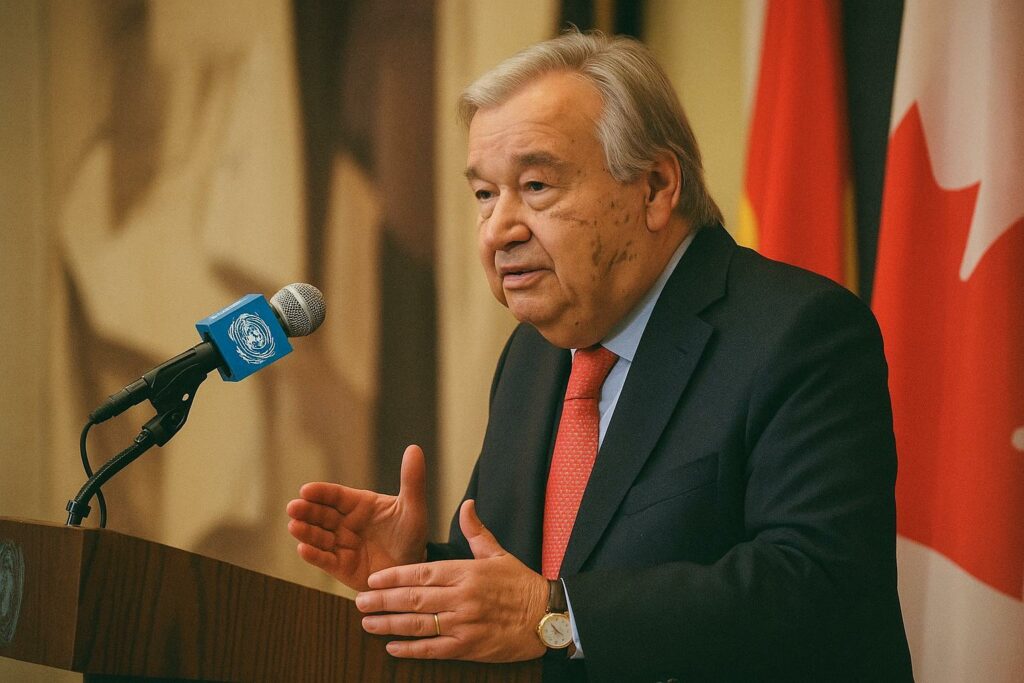A Timely Plea from the United Nations
Speaking from New York in the run-up to the 27 June International Day of Micro-, Small and Medium-Sized Enterprises, António Guterres urged capitals to “invest in the success” of the planet’s smallest firms. The Secretary-General’s appeal, though ritual in its cadence, is laden with economic urgency. According to UN Department of Economic and Social Affairs data, MSMEs account for more than 90 per cent of global business entities and generate roughly 60 per cent of employment. In many fragile or commodity-dependent economies, they are not merely a statistical majority; they are a social shock absorber that cushions households from downturns, conflict and climate stress.
Bottlenecks in Access to Capital
Behind the rhetoric lies a stubborn financing gap. The International Finance Corporation places the unmet credit demand of formal MSMEs in emerging markets at 5.2 trillion dollars annually, a figure that swells further once informal ventures are counted (International Finance Corporation 2022). Commercial lenders often judge micro-firms too risky, while development banks face mandate limits. The UN chief’s exhortation for “affordable capital” therefore speaks to a policy frontier where blended finance, partial-credit guarantees and fintech solutions must converge. Kenya’s Hustler Fund and Brazil’s Pronampe scheme offer early evidence that calibrated state intervention can crowd-in private money without distorting markets, yet replication remains patchy.
Digital Infrastructure and the AI Divide
Covid-19 condensed a decade of digital adoption into two years, but the acceleration was uneven. The International Telecommunication Union estimates that 2.6 billion people still lack meaningful internet access (ITU 2022). For a Bolivian weaver selling through WhatsApp or a Jordanian ag-tech start-up training its algorithm, bandwidth is now as critical as working capital. Mr Guterres warned that MSMEs risk being sidelined “in global value chains and in debates on emerging technologies”. His caution is corroborated by the Organisation for Economic Co-operation and Development, which finds that only 16 per cent of small manufacturers in OECD countries deploy any form of artificial intelligence, compared with 54 per cent of large firms (OECD 2023). The gulf is wider in the global South, stunting productivity and export diversification.
Empowering Women and Youth Through Enterprise
The social dividend of MSMEs extends well beyond macro-indicators. In sub-Saharan Africa, women own an estimated 26 per cent of formal SMEs, yet receive a mere 6 per cent of bank credit (World Bank 2023). Youth unemployment in North Africa, hovering near 30 per cent, similarly finds relief in start-ups that thrive on modest capital and local insight. “Micro-businesses are the first rung on the ladder of dignity,” argues Rebeca Grynspan, Secretary-General of UNCTAD, who calls for gender-responsive procurement rules to correct market bias. Successful examples abound: Rwanda’s Buy-From-Women platform links female farmers to export buyers, while India’s digital public infrastructure has slashed collateral requirements for first-time borrowers under thirty.
Balancing National Regulation with Multilateral Support
Domestic reforms matter, but the multilateral arena is no less decisive. The World Trade Organization’s Joint Initiative on MSMEs, endorsed by 97 members, seeks to ease customs procedures and enhance e-commerce transparency. At last year’s G20 Bali Summit, leaders adopted a Roadmap for Digital Public Goods that envisages open-source payment rails adaptable to local contexts. Critics note, however, that these frameworks remain voluntary and under-funded. “Without hard targets and a predictable replenishment mechanism, good intentions risk evaporating at the next crisis,” cautions Adriana Kugler, U.S. Executive Director at the World Bank.
Prospects for a Resilient Entrepreneurial Ecosystem
The appeal issued by Mr Guterres will resonate only if paired with measurable deliverables at the upcoming Summit of the Future slated for September. Governments could commit to disaggregated data reporting, while development finance institutions calibrate risk-weighted assets to incentivise down-scaling. Equally vital is the private sector’s willingness to embed micro-suppliers in longer contracts, smoothing cash flow volatility. If these strands coalesce, micro-businesses may yet fulfil their outsized promise as laboratories of innovation and vectors of social cohesion. Absent such concerted action, the global economy will continue to rely on emotive slogans rather than structural support, leaving the world’s tiniest firms to punch well above their means with little to show for it.

